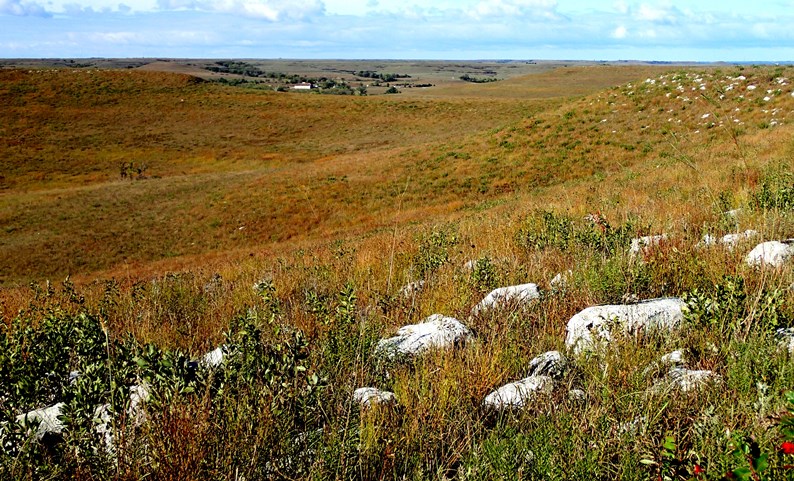LTER renewal
Konza Prairie research program receives $6.76 million NSF grant renewal
Thursday, Nov. 6, 2014
MANHATTAN — Long-term ecological research at Kansas State University's Konza Prairie Biological Station will continue for another six years with a $6.76 million grant renewal from the National Science Foundation.
Konza Prairie, an 8,600-acre native tallgrass prairie research station, is jointly owned by Kansas State University and The Nature Conservancy and managed by the university's Division of Biology in the College of Arts & Sciences.
The NSF Long-Term Ecological Research, or LTER, program is an interdisciplinary research and education program focused on the tallgrass prairie, one of the most endangered ecosystems in the world, according to John Blair, the research program's director and university distinguished professor of biology.
"The Konza LTER grant funds core research activities at the Konza Prairie Biological Station, and supports the activities of scientists and students from K-State and from other institutions around the world," Blair said.
This is the seventh consecutive renewal for the Konza site since being selected as one of the first six NSF long-term ecological research sites in 1980. The new grant brings the total LTER funding to more than $29 million. The NSF renews Long-Term Ecological Research programs based on a rigorous review of past productivity and proposed new research.
According to reviewers of the renewal, the Konza LTER program is an excellent example of the use of long-term data and modeling or other analyses to test important ecological concepts and theories. Research at Konza has continued to develop a strong on-site program as well as a cross-site presence as part of several national and international network projects.
"The LTER and Konza Prairie research facilities are some of the most unique in the world," said Peter Dorhout, dean of the College of Arts & Sciences. "The continuing investment by NSF in environmental research in unspoiled tallgrass prairie lands is a testament to the hard work and dedication of our faculty, students and staff and the many others at the partner universities."
Konza Prairie Biological Station has approximately 120 active registered research projects by Kansas State University scientists in five colleges and 14 departments as well as more than 60 visiting scientists and students from other research institutions across the U.S. and world.
"Konza LTER research is organized around four major themes — land-use change, climatic variability, altered biogeochemical cycles and restoration ecology — and builds on a 30-year foundation of long-term experiments and measurements in terrestrial and aquatic grassland ecosystems," Blair said. "The goals of the research are to advance scientific understanding of grasslands and contribute to the conservation of tallgrass prairie and grasslands globally."
Research conducted at Konza Prairie has resulted in more than 1,450 publications and more than 220 student theses and dissertations. The renewal of the Long-Term Ecological Research program will give Blair and his colleagues the opportunity to test and refine models of ecological change, and provide new insights into grassland responses to environmental and land-use changes.
"The renewal of the Konza LTER grant will ensure that this level of productivity continues," Blair said. "Research activities such as those at Konza Prairie are essential for achieving K-State's 2025 goal of becoming a Top 50 public research university."
New and ongoing research projects at Konza Prairie include investigating grassland responses to fire and grazing, woody plant encroachment, climate change, and nutrient enrichment. In addition to research, the Long-Term Ecological Research program also supports education and training of students from elementary school to college.
Co-principal investigators for the grant include Kansas State University Division of Biology faculty Walter Dodds and Tony Joern, both university distinguished professors; and Jesse Nippert, associate professor; as well as Sara Baer, professor in the plant biology department at Southern Illinois University, Carbondale and Kansas State University's 2014 College of Arts & Sciences Young Alumni Award recipient.